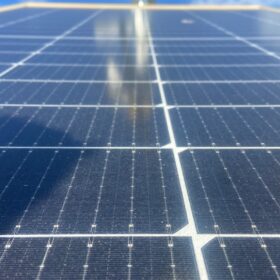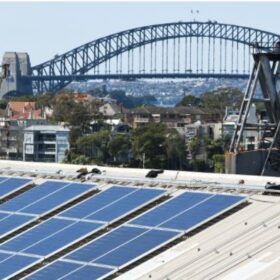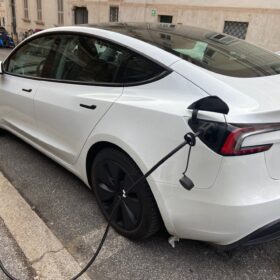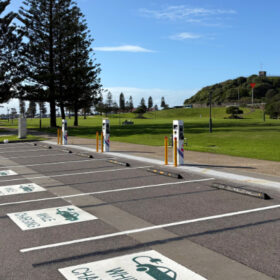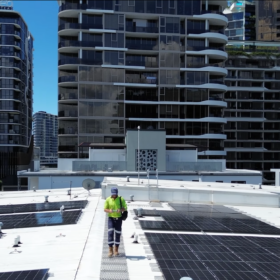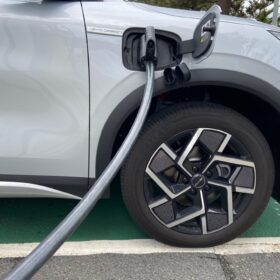Tesla unveils 80 kW solar canopy at new EV charging site
Tesla has unveiled its largest electric vehicle charger solar canopy in Australia, pulling the wraps off an 80 kW PV array alongside the Pacific Highway in northern New South Wales.
Federal government keeps faith in SunCable project
SunCable has welcomed the federal government’s decision to renew major project status for its Australia-Asia PowerLink project that would send up to 6 GW of renewable power from the Northern Territory to industries and urban centres in Darwin and Singapore.
Ausgrid accelerates vehicle-to-grid revolution in New South Wales
In a first for the company, New South Wales electricity distributor Ausgrid has connected a vehicle-to-grid system to it’s network, allowing electric vehicles to draw and discharge power to and from the grid.
Clean energy research nabs over $2.6 million in grants
Over $2.6 million have been allocated to renewable energy research products involving perovskite cell commercialisation, battery cell aging, next-gen anode technology, electric vehicle charger security, and solving distributed energy resource network constraint complexity.
New South Wales councils not waiting for government to mandate electrification
With just 54 months until New South Wales reaches its 2030 50% emissions reduction target, five councils are taking matters into their own hands to mandate the electrification of all new buildings, except industrial.
Electric vehicle conspiracy theories challenge transport decarbonisation
A Queensland university has led a global study into misinformation about electric vehicles, which it found is fuelled by conspiracy theories and mistrust, even among people who own them.
Advocacy group calls for national CER body to boost participation in the NEM
A new report commissioned by Energy Consumers Australia is calling for the establishment of an independent national consumer energy resources body with adequate powers to boost participation in the national electricity market.
Sun-powered network keeps pace with 1,000% EV growth in four years
The installation of 34 new electric vehicle charging ports in Newcastle, powered by a council-owned solar farm, rises to meet a 1,000% surge in uptake of EVs in the city, in the past four years.
Brisbane apartment building gets solar and electric vehicle charger upgrade
A feasability study for a Brisbane 55-unit residential apartment building to install rooftop solar and electric vehicle charging stations, completed by New South Wales-based solar comparison business Solar Choice, has resulted in the installation of 40 kW system, with room for future expansion.
Battery and electric vehicle automation company gets $45 million capital raise
Victorian energy technology company Amber Electric is expanding its battery and electric vehicle automation technology globally after successfully securing $45 million in capital funding.



